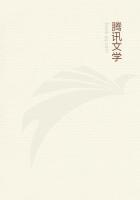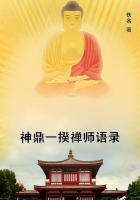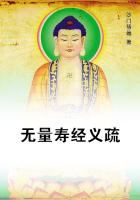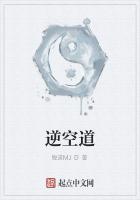"This caused an altercation, and the poor lady rushed out; and finding the officer peremptory, flung her arms round the body, and said they should not be parted--she would be buried with him.
"The official was moved, but said the law was strict, and the town must conduct the funeral unless she could find the sad courage to give the necessary instructions. With this he was going out, inexorable, when all of a sudden I observed something that sent my heart into my mouth, and Icried 'Arretez!' so loud that everybody stared.
"I said, 'You must wait till a physician has seen him; he has moved a finger.'
"I stared at the body, and they all stared at me.
"He _had_ moved a finger. When I first saw him, his fingers were all close together; but now the little finger was quite away from the third finger--the one with the ring on.
"I felt his heart, and found a little warmth about it, but no perceptible pulse. I ordered them to take off his sheet and put on blankets, but not to touch him till I came back with a learned physician. The wife embraced me, all trembling, and promised obedience. I got a _fiacre_ and drove to Dr. Brasseur, who was my hostile professor, but very able. I burst on him, and told him I had a case of catalepsy for him--it wasn't catalepsy, you know, but physicians are fond of Greek; they prefer the wrong Greek word to the right English. So I called it 'catalepsy,' and said Ibelieved they were going to bury a live man. He shrugged his shoulders, and said that was one of the customs of the country. He would come in an hour. I told him that would not do, the man would be in his coffin; he must come directly. He smiled at my impetuosity, and yielded.
"I got him to the patient. He examined him, and said he might be alive, but feared the last spark was going out. He dared not venture on friction. We must be wary.
"Well, we tried this stimulant and that, till at last we got a sigh out of the patient; and I shall not forget the scream of joy at that sigh, which made the room ring, and thrilled us all.
"By-and-by I was so fortunate as to suggest letting a small stream of water fall from a height on his head and face. We managed that, and by-and-by were rewarded with a sneeze.
"I think a sneeze must revivify the brain wonderfully, for he made rapid progress, and then we tried friction, and he got well very quick. Indeed, as he had nothing the matter with him, except being dead, he got ridiculously well, and began paying us fulsome compliments, the doctor and me.
"So then we handed him to his joyful wife.
"They talk of crying for joy, as if it was done every day. I never saw it but once, and she was the woman. She made a curious gurgle; but it was very pretty. I was glad to have seen it, and very proud to be the cause.
The next day that pair left. He was English and so many good-natured strangers called on him that he fled swiftly, and did not even bid me good-by. However, I was told they both inquired for me, and were sorry Iwas out when they went."
"How good of them!" said Vizard, turning red.
"Oh, never mind, sir; I made use of _him._ I scribbled an article that very day, entitled it, 'While there's life there's hope,' and rushed with it to the editor of a journal. He took it with delight. I wrote it _'a la Francaise:_ picture of the dead husband, mourning wife, the impending interment; effaced myself entirely, and said the wife had refused to bury him until Dr. Brasseur, whose fame had reached her ears, had seen the body. To humor her, the doctor was applied to, and, his benevolence being equal to his science, he came: when, lo! a sudden surprise; the swift, unerring eye of science detected some subtle sign that had escaped the lesser luminaries. He doubted the death. He applied remedies; he exhausted the means of his art, with little avail at first, but at last a sigh was elicited, then a sneeze; and, marvelous to relate, in one hour the dead man was sitting up, not convalescent, but well. I concluded with some reflections on this _most important case of suspended animation_very creditable to the profession of medicine, and Dr. Brasseur.""There was a fox!"
"Well, look at my hair. What else could you expect? I said that before, too.
"My notice published, I sent it to the doctor, with my respects, but did not call on him. However, one day he met me, and greeted me with a low bow. 'Mademoiselle,' said he, 'you were always a good student; but now you show the spirit of a _confr'ere,_ and so gracefully, that we are all agreed we must have you for one as soon as possible.'
"I courtesied, and felt my face red, and said I should be the proudest woman in France.
"'Grand Dieu,' said he, 'I hope not; for your modesty is not the least of your charms.'
"So, the way was made smooth, and I had to work hard, and in about fourteen months I was admitted to my final examination. It was a severe one, but I had some advantages. Each nation has its wisdom, and I had studied in various schools.
"Being a linguist, with a trained memory, I occasionally backed my replies with a string of French, German, English, and Italian authorities that looked imposing.
"In short, I did pass with public applause and cordial felicitation; they quite _fe'ted_ me. The old welcomed me; the young escorted me home and flung flowers over me at my door. I reappeared in the balcony, and said a few words of gratitude to them and their noble nation. They cheered, and dispersed.
"My heart was in a glow. I turned my eyes toward New York: a fortnight more, and my parents should greet me as a European doctress, if not a British.
"The excitement had been too great; I sunk, a little exhausted, on the sofa. They bought me a letter. It was black-edged. I tore it open with a scream. My father was dead."

